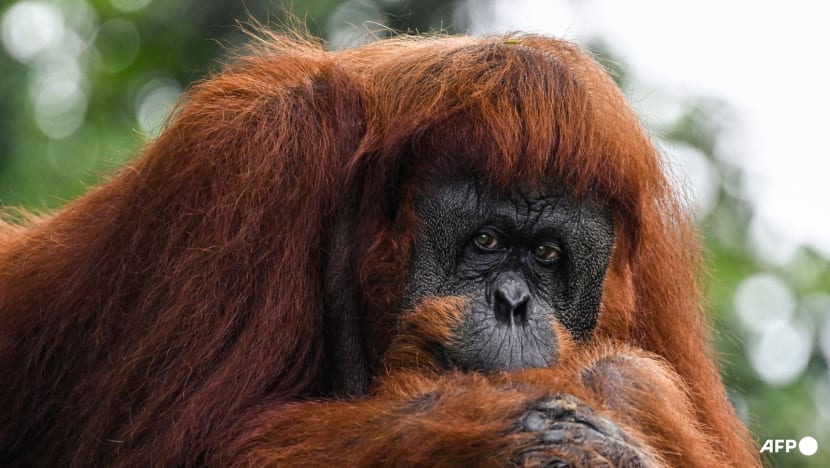Malaysia eyes 'orangutan diplomacy' with nations that import palm oil
Orangutans are critically endangered.

A Sumatran orangutan rests at Malaysia's national zoo in Kuala Lumpur on Aug 23, 2023. (File photo: AFP/Mohd Rasfan)
KUALA LUMPUR: Malaysia intends to gift orangutans to palm oil-purchasing countries as part of an initiative similar to China's panda diplomacy, the commodities minister said on Tuesday (May 7).
Johari Abdul Ghani said the "orangutan diplomacy" strategy would gift the endangered great apes to palm oil trading nations, especially major importing territories like the European Union and India.
Orangutans are critically endangered, according to the World Wide Fund for Nature (WWF), with habitat loss "due to logging, agricultural expansion, particularly palm oil plantations, and infrastructure development" posing the greatest threat.
There are fewer than 105,000 of them left on the island of Borneo. The species is distinguished by its red fur and gets its name from the Malay phrase "man of the forest".
"By introducing 'orangutan diplomacy', it will show to the world, that Malaysia is always committed to biodiversity conservation," he said in a post on social media platform X.
He urged palm oil companies to collaborate with non-governmental organisations to help preserve and provide technical expertise on wildlife in Malaysia.
Beijing has long used panda diplomacy as a form of soft power.
It only loans pandas to foreign zoos, which must usually return any offspring within a few years of their birth to join the country's breeding programme.
Palm oil is blamed by environmentalists for fuelling the destruction of rainforests in Malaysia and Indonesia, which together produce the majority of global output.
The edible oil is used in foods such as cakes, chocolate and margarine, as well as cosmetics, soap and shampoo.
The European Union last year approved a ban on imports of commodities linked to deforestation, which could hurt palm oil.
Malaysia, the world's second-largest producer of palm oil after Indonesia, has said the law is discriminatory and aimed at protecting the EU's oilseeds market.


















